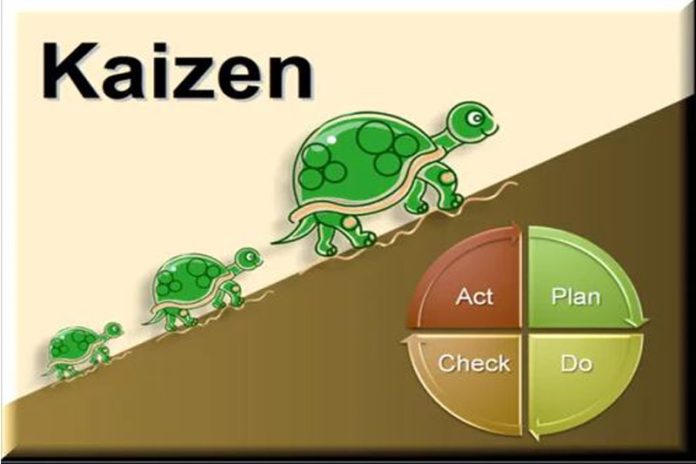Kaizen is a Japanese term that means "change for better" or "continuous improvement." Kaizen training refers to the process of educating employees, managers, and even entire organizations about the principles and methodologies of Kaizen. Kaizen is a systematic approach to improving productivity, quality, efficiency, and overall business processes through small, incremental changes. This concept is commonly associated with lean manufacturing and is widely used in various industries. The importance of Kaizen training lies in its potential to bring about positive and lasting changes within an organization.
Reasons why Kaizen training is essential:
Cultural Shift: Kaizen fosters a culture of continuous improvement within an organization. This training helps employees and management understand and embrace this culture, making it an integral part of the company’s routine.
Empowerment: Kaizen training empowers employees at all levels to identify problems and propose solutions. It promotes a sense of ownership and accountability for the work process.
Efficiency: By breaking down processes into smaller, manageable steps and constantly seeking improvements, Kaizen helps streamline operations and eliminate waste. This results in improved efficiency and reduced operational costs.
Quality Improvement: Kaizen’s focus on quality control and enhancement leads to better product and service quality. Through training, employees learn how to maintain and enhance quality standards.
Reduced Waste: Kaizen identifies and reduces various types of waste, including overproduction, waiting times, excess inventory, and defects. This leads to cost savings and increased competitiveness.
Employee Engagement: Training in Kaizen principles encourages employees to become actively engaged in their work. When they see their ideas being implemented and resulting in positive changes, it boosts morale and job satisfaction.
Problem Solving: Kaizen training equips employees with problem-solving skills and techniques. They learn how to analyze issues, identify root causes, and implement effective solutions.
Data-Driven Decision-Making: Kaizen relies on data and performance metrics to drive improvement. Training helps employees understand how to collect, analyze, and use data to make informed decisions.
Sustainability: Kaizen is not a one-time effort; it’s a long-term commitment to improvement. Training ensures that the principles of Kaizen become an ongoing practice within the organization, leading to sustained progress.
Competitiveness: Continuous improvement through Kaizen helps companies stay competitive in their industry. Organizations that can adapt and innovate are better positioned to thrive in a rapidly changing business landscape.
Customer Satisfaction: Higher product and service quality resulting from Kaizen efforts lead to increased customer satisfaction, loyalty, and business growth.
Reduced Lead Times: By eliminating bottlenecks and inefficiencies, Kaizen can reduce lead times and improve on-time delivery to customers.
Kaizen training involve workshops, seminars, and hands-on exercises that teach employees and management how to identify opportunities for improvement, implement changes, and sustain those improvements over time. By investing in Kaizen training, organizations can create a culture of continuous improvement that not only benefits the bottom line but also empowers employees and enhances overall organizational effectiveness.


